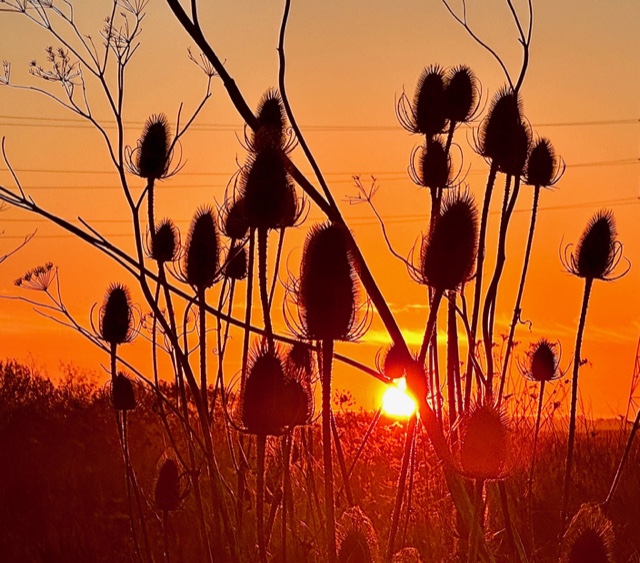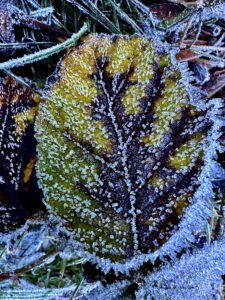 Are you going out to listen to the land as the season gets colder? When the rain, snow, ice and wind are your companions? When it’s colder during the day and darker earlier?
Are you going out to listen to the land as the season gets colder? When the rain, snow, ice and wind are your companions? When it’s colder during the day and darker earlier?
How do you listen when the season is busy, when there are crises around us, when the violence of the world breaks your heart, when you’re tired and just need a break?
These are the most important times to step outside your door, to look outside your window, to get out to a park or open space.To open to what the cold and dark want to say amidst the season of colorful lights.
When I miss a day of being on an outside walk, I feel less than whole.  Like part of my spirit and wisdom is missing. Like part of my resilience, expansiveness and heart is missing. So I find ways to take my lunch and breaks out in the air. It’s a necessity to my well being!
Like part of my spirit and wisdom is missing. Like part of my resilience, expansiveness and heart is missing. So I find ways to take my lunch and breaks out in the air. It’s a necessity to my well being!
If it’s hard (for many reasons), to get outside, you can imagine a place in nature that you love, and communicate and listen to while you’re inside. You can listen to an app with natural sounds, or spend a few minutes looking at beautiful pictures of the natural world. I encourage you to notice how you feel after connecting with something natural. Perhaps your body, thoughts and heart are more open and responsive, and challenges in your life seem a little less hard.
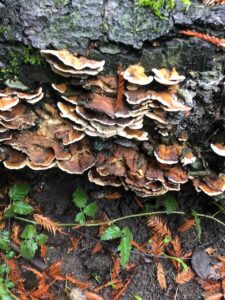 May you find creative ways to nourish yourself this season: connecting to frost, mud, raindrops, mushrooms, moss and all the special gifts of the wintering season.
May you find creative ways to nourish yourself this season: connecting to frost, mud, raindrops, mushrooms, moss and all the special gifts of the wintering season.
In this time of internal reflection, I am strengthening my commitment to justice in my Ecotherapy practice by reading Decolonizing Therapy: Oppression, Historical Trauma and Politicizing Your Practice (see more information below). This week, I am stepping over the threshold to deepen my inquiry into how our mental health system has not served all people, particularly people who need it most. I am committing to un/decolonizing my own way of practicing therapy and I hope you will consider joining me.
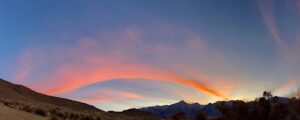 If you are in the healing profession, or have taken part in it, we have been indoctrinated into a field that has dismissed indigenous healers and learning, dismissed big expressions of grief and rage, dismissed ceremonies and community circles for healing. We are in a mental health system that has not adequately critiqued or addressed the unjust systems that we suffer from, systems that perpetuate poverty, injustice, racism, sexism, ableism and more. These are the continuing systems that started with the colonization of indigenous lands, chattel slavery, domination and greed.
If you are in the healing profession, or have taken part in it, we have been indoctrinated into a field that has dismissed indigenous healers and learning, dismissed big expressions of grief and rage, dismissed ceremonies and community circles for healing. We are in a mental health system that has not adequately critiqued or addressed the unjust systems that we suffer from, systems that perpetuate poverty, injustice, racism, sexism, ableism and more. These are the continuing systems that started with the colonization of indigenous lands, chattel slavery, domination and greed.
I invite you to join me on this journey of asking how does my healing, teaching, or serving address not only the individuals I walk with and support, but how does the mental health system keep people oppressed and repressed?
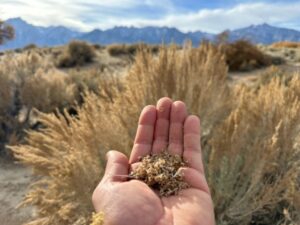 “How has colonial violence been embedded within the bodies and psyches of the people we work with; within ourselves; within the institutions and within the businesses, nonprofits, and coaching and consulting programs we create?” –Decolonizing Therapy
“How has colonial violence been embedded within the bodies and psyches of the people we work with; within ourselves; within the institutions and within the businesses, nonprofits, and coaching and consulting programs we create?” –Decolonizing Therapy
These questions take us on a journey of courage, deep inquiry, resilience and commitment. Like anti-racist and other anti-oppression work, the questions go back many generations, and the answers and changes can support many generations to come. I hope you will join me and many others on this worthy journey by buying Decolonizing Therapy or another growing-edge book for justice. Feel free to email me about it or get in a book group with colleagues to create community for facing the challenging questions and actions asked of you.
“Decolonizing therapy seeks a healing paradigm that is accessible to all. Affordable to all. Implicitly trauma-conscious. Implicitly nonhierarchical. Implicitly pro-Black….”
In this dark season of going within, may we all inquire deeply and find the courage to act for change. May we create a loving, nourishing, restful, community-oriented holiday season for ourselves and our loved ones.
NATURE PRACTICE
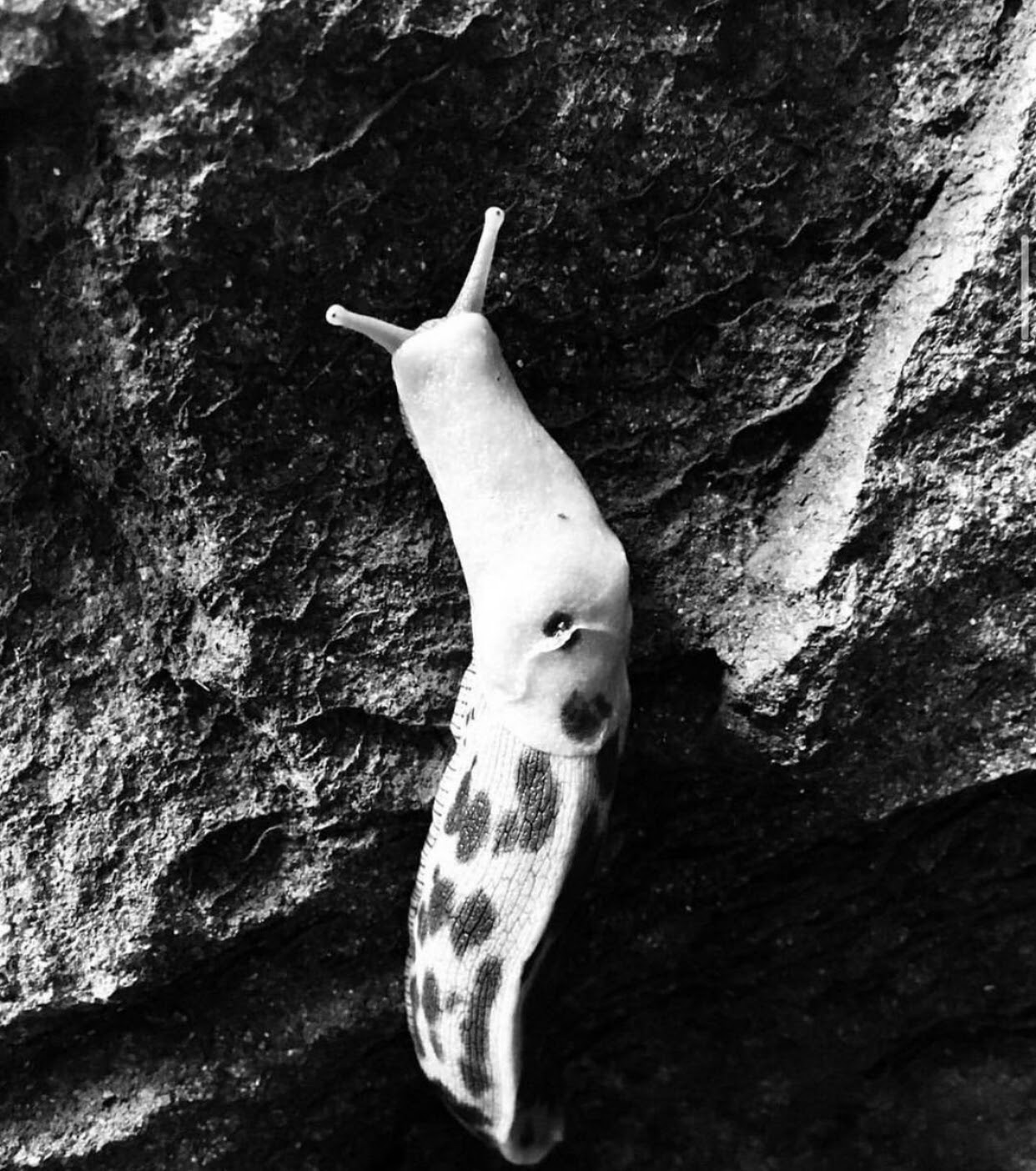
There’s something about the season, despite the many cultural messages to the contrary, that invites an inward turning and slowing of doings. We might spend time with slugs, snails, mushrooms, trees, or other slow creatures, or evoke their image and energy. Can we meet the slow ones at their pace? Sometimes even watching a video of them can regulate our nervous system and suggests a deeper breath. Can we meet ourselves at the pace that our bodies and hearts desire?
For some regular things you do, try it at 80% of your normal pace.
Try practicing delayed responses and pregnant pauses, becoming comfortable with silence, not filling the space. Practice saying no to more. Put an out-of-office signature on your email and texts. What do you notice when you bring your presence to the task? Do you notice any resistances within to letting go of freneticism and list-making? This isn’t about getting things done or not getting things done, but about bringing presence to what is already there. And listening to what rhythms our bodies may want that aren’t necessarily supported by the values and structures of society. As Bayo Akomolafe says, “Slowing down is not a function of speed, is a function of awareness…It’s a function of presence.”
PROFESSIONAL RESOURCES
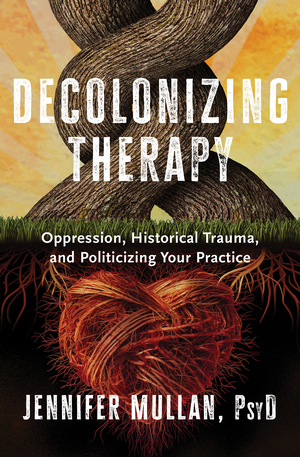
Decolonizing Therapy
Decolonizing Therapy: Oppression, Historical Trauma, and Politicizing Your Practice is new book by Dr. Jennifer Mullan that is a call to action for therapists to politicize their practice through an emotional decolonial lens.
An essential work that centers colonial and historical trauma in a framework for healing, Decolonizing Therapy illuminates that all therapy is—and always has been— inherently political. To better understand the mental health oppression and institutional violence that exists today, we must become familiar with the root of disembodiment from our histories, homelands, and healing practices.
HOPEFUL NEWS & ACTIVISM
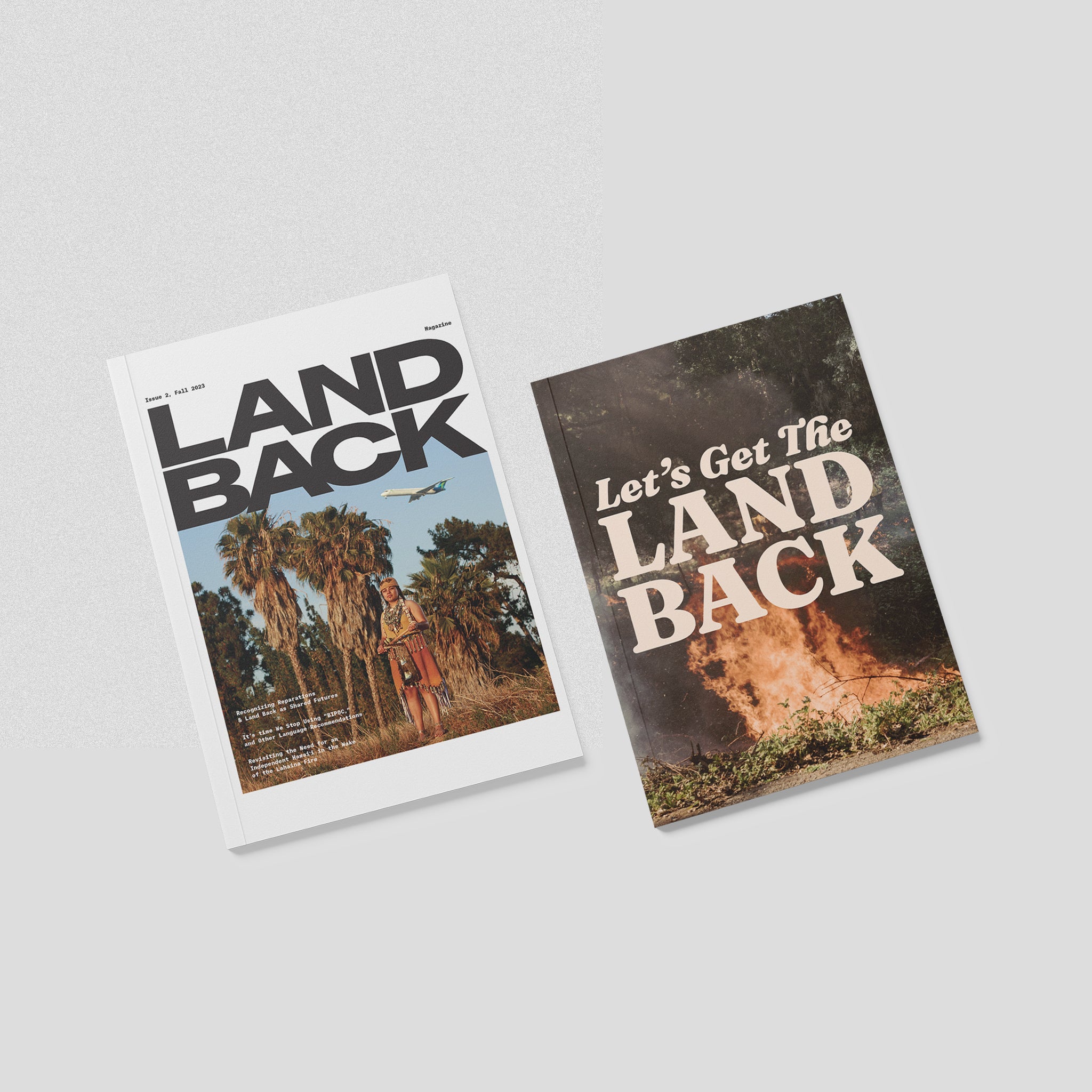
LAND BACK MAGAZINE
NDN Collective released pre-orders for the second issue of the LANDBACK Magazine. Available as a limited print-run, the magazine features writings on a range of topics from unpacking Indigenous rights based language, to the current LANDBACK fights taking place in Hawai`i, and much more.
The LANDBACK print bundle includes a copy of Issue 2 of the LANDBACK Magazine and a copy of the book Let’s Get The Land Back: A Toolkit to Restore our Relations. Written by PennElys Droz, Let’s Get the Land Back provides insight on the various legal frameworks for land reclamation.
Get it here.
POETRY AND INSPIRATION
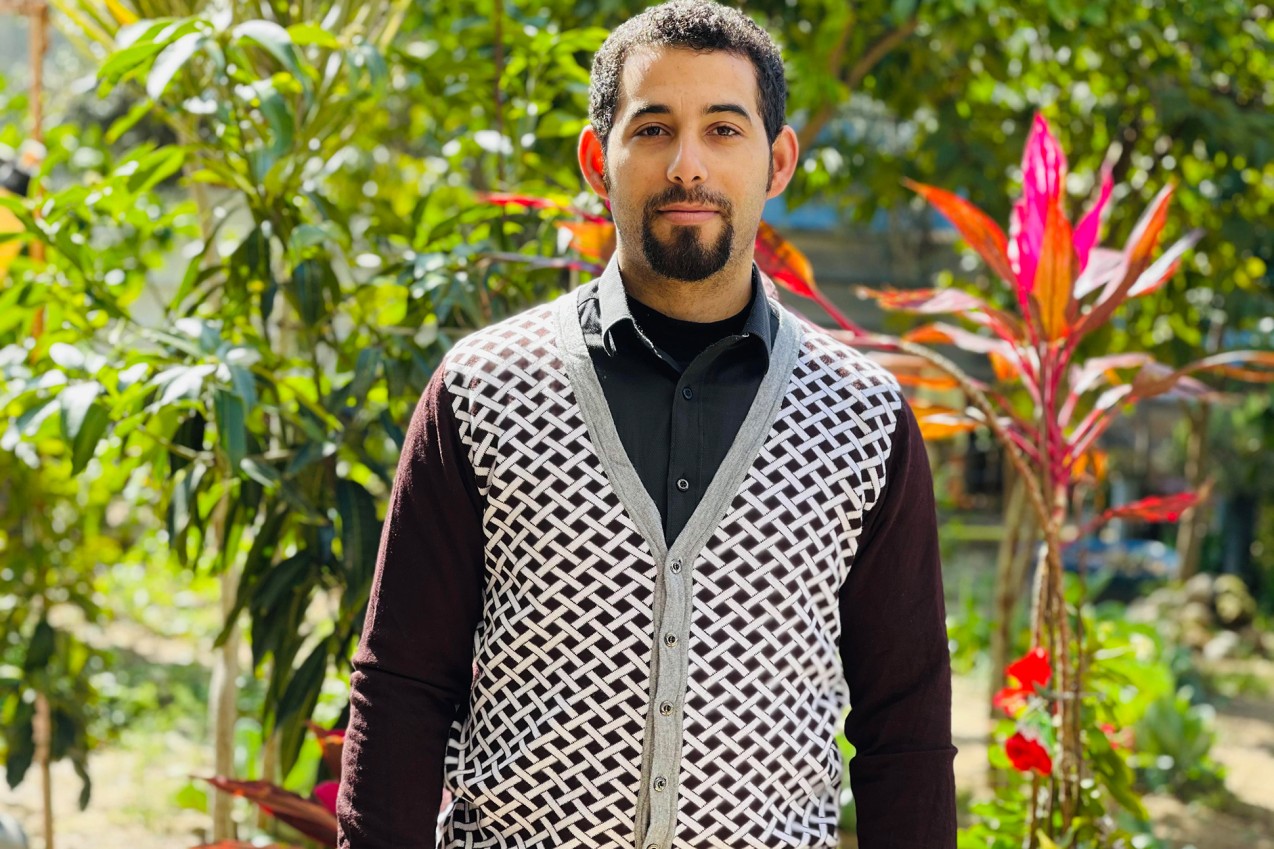
Things You May Find Hidden In My Ear
Mosab Abu Toha
i.
When you open my ear, touch it
gently.
My mother’s voice lingers somewhere inside.
Her voice is the echo that helps recover my equilibrium
when I feel dizzy during my attentiveness.
You may encounter songs in Arabic,
poems in English I recite to myself,
or a song I chant to the chirping birds in our backyard.
When you stitch the cut, don’t forget to put all these back in my ear.
Put them back in order as you would do with books on your shelf.
ii
The drone’s buzzing sound,
the roar of an F-16,
the screams of bombs falling on houses,
on fields, and on bodies,
of rockets flying away—
rid my small ear canal of them all.
Spray the perfume of your smiles on the incision.
Inject the song of life into my veins to wake me up.
Gently beat the drum so my mind may dance with yours,
my doctor, day and night.
What is home?
What is home:
it is the shade of trees on my way to school
before they were uprooted.
It is my grandparents’ black-and-white wedding
photo before the walls crumbled.
It is my uncle’s prayer rug, where dozens of ants
slept on wintry nights, before it was looted and
put in a museum.
It is the oven my mother used to bake bread and
roast chicken before a bomb reduced our house
to ashes.
It is the café where I watched football matches
and played—
My child stops me: Can a four-letter word hold
all of these?
Mosab Abu Toha is a Palestinian poet,
short story writer, and essayist from Gaza.
Mosab was kidnapped by Israeli forces on
November 19th while trying to enter Egypt at the
Rafah checkpoint. He was carrying his
three-year-old son Mustafa at the time.
After being beaten, interrogated, and stripped
of his possessions, Abu Toha was released
two days later.His collection Things You
May Find Hidden in My Ear was a finalist
for the National Book Critics Circle Award
and won a Derek Walcott Poetry Prize and an
American Book Award. Find more here.
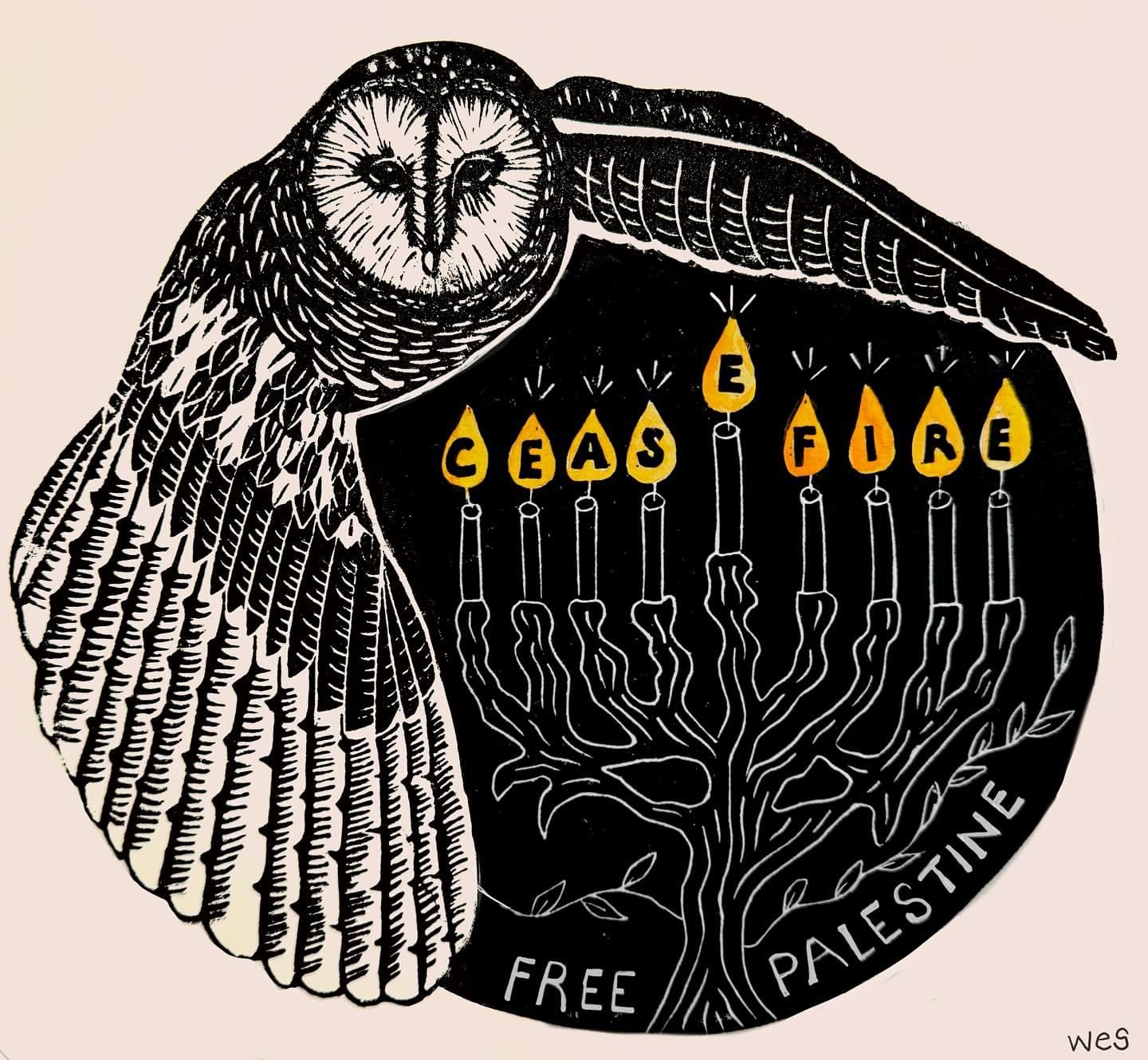
Oseh Shalom
Barbara D. Holender
Giver of peace,
teach us to see ourselves
in the face of the Other,
that we may learn to be
patient with fault
generous with love
sparing with anger.
Help us to understand
that our little lives
are potent with great good,
that we are healers in Your image,
that reaching out in need of You
to
others more in need,
we find You near.
Give us the grace
simply to be kind.
Then peace must surely come
to dwell among us.
A giant in the Jewish feminist world, Barbara Holender was a poet and author of Ladies of Genesis. She was recipient Western New York Writers-in-Residence award, 1986, and died in 2021.
Image Credit: Wendy Elisheva Somerson
No Pain Like Our Pain
by Rabbi Tamara Cohen
“Look carefully and see if there could possibly be pain like my pain, like the one bestowed by You upon me.” – Lamentations 1:12
Dear God, help us look,
look closer so that we may see
our children in their children,
their children in our own.
Help us look so that we may see You –
in the bleary eyes of each orphan, each grieving childless mother,
each masked and camouflaged fighter for his people’s dignity.
Dear God, Divine Exiled and Crying One,
Loosen our claim to our own uniqueness.
Soften this hold on our exclusive right – to pain, to compassion, to justice.
May your children, all of us unique and in Your image,
come to know the quiet truths of shared pain,
shared hope,
shared land,
shared humanity,
shared risk,
shared courage,
shared peace.
In Sh’Allah. Ken Yehi Ratzon.
May it be Your will.
Rabbi Tamara Cohen is the VP and Chief of Program Strategy at Moving Traditions. More of her liturgical poetry can be found in Siddur Lev Shalem and on ritualwell.org.
Thank you for reading! We welcome your comments and questions. Contact EBI: earthbodyinstitute@gmail.com.
We acknowledge that The Earthbody Institute is located in Huchiun, in unceded Lisjan territory, now known as Oakland. We honor and support the ancestors and present Lisjan people. We encourage you to learn more and make a donation to support the return of their land and culture.

